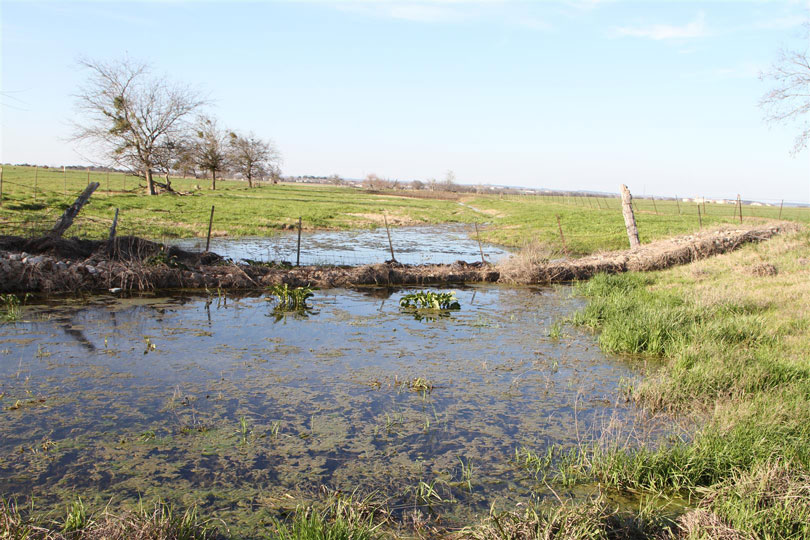By Jessica Domel
Multimedia Reporter
There is good news for landowners challenging the Environmental Protection Agency’s (EPA) embattled Waters of the U.S. (WOTUS) rule, which gives EPA broad authority through the Clean Water Act (CWA) over areas that may only sometimes hold water.
Monday the Supreme Court of the United States (SCOTUS) unanimously ruled the federal district courts—not federal courts of appeals—have jurisdiction to review WOTUS challenges.
“That gives our property owners much more of a leg to stand on when challenging this ruling,” Regan Beck, director of Government Affairs for Texas Farm Bureau (TFB) said. “In the district courts, you can develop a more factual record that would be helpful, while at the appellant level you would be more limited on what you could introduce.”
The appellant courts also seem to have much more of a deference to government agencies’ interpretations of federal law.
“That would really make it a higher hurdle or higher bar for property owners to challenge this at the appellate court level,” Beck said. “If it goes through the district court, they can challenge it on a more even standing. They can still appeal the ruling, but the district court is where these cases should be started.”
The district court allows up to six years to file, while the appellate court allows only a few months.
The SCOTUS ruling will now be handed back down to the appeals court.
“When the appeals court gets that back, the appeals court will need to rule that they don’t have jurisdiction,” Beck said.
WOTUS is currently stayed by the Sixth Circuit Court of Appeals.
“The rule is not in effect as long as the stay is in place,” Beck said in an interview with the TFB Radio Network. “When it does go back to the appeals court, that stay is lifted, and it is going to be incumbent upon people that are involved at the district court levels to try to get a stay there. Otherwise, these rules will go in place.”
The Environmental Protection Agency has proposed a rule that would delay the implementation of WOTUS for two years while they consider whether or not to permanently repeal WOTUS. That rule is not yet finalized.
“We’ll see if they take that action quickly or how that will play out,” Beck said. “There’s a chance the rules will go into effect for a while until EPA can extend implementation of that rule. It’s a little confusing at the moment.”
District courts are independent of each other, so it is not clear which cases against WOTUS will be heard first and where. The state of Texas, Texas Farm Bureau, the Matagorda County Farm Bureau and American Farm Bureau Federation have filed suit against WOTUS on behalf of landowners.
“WOTUS is supposed to mean large, navigable waters like the Mississippi River. Unfortunately, when they passed the Clean Water Act in 1972, the navigable waters of the U.S. was not defined,” Beck said. “Over time, there’s been a slow increase in regulation over these areas to the point that now with the new WOTUS rule implemented by the EPA, they’re so broad almost all water is included in it.”
The 2015 rule would allow EPA to regulate low-lying areas that only sometimes hold water. This gives EPA the ability to decide who can do what with their property by requiring permits and fining those who do not have them.
“Texas and Texas Farm Bureau are very concerned about our environment and water. However, these rules are so broad, they could end our farming practices as we know it,” Beck said. “The scary thing about this is it was written in such a way that there’s no definite answer whether you’re violating it or not.”
If you build a fence, apply pesticides or move dirt in an area EPA considers a water of the U.S., you could be fined $37,500 per day you’re in violation.
“The reason we filed this is because it is so overreaching and could affect our producers in such a negative manner that we had to. It’s a really poorly written law that is not clearly defined and could really put our members in jeopardy,” Beck said.
Landowners are encouraged to stay abreast of upcoming WOTUS issues, especially if the stay is lifted, and continue to be in compliance with pre-2015 WOTUS rules.
“Texas Farm Bureau is staying on top of this,” Beck said. “Texas Farm Bureau is involved with the American Farm Bureau Federatio

